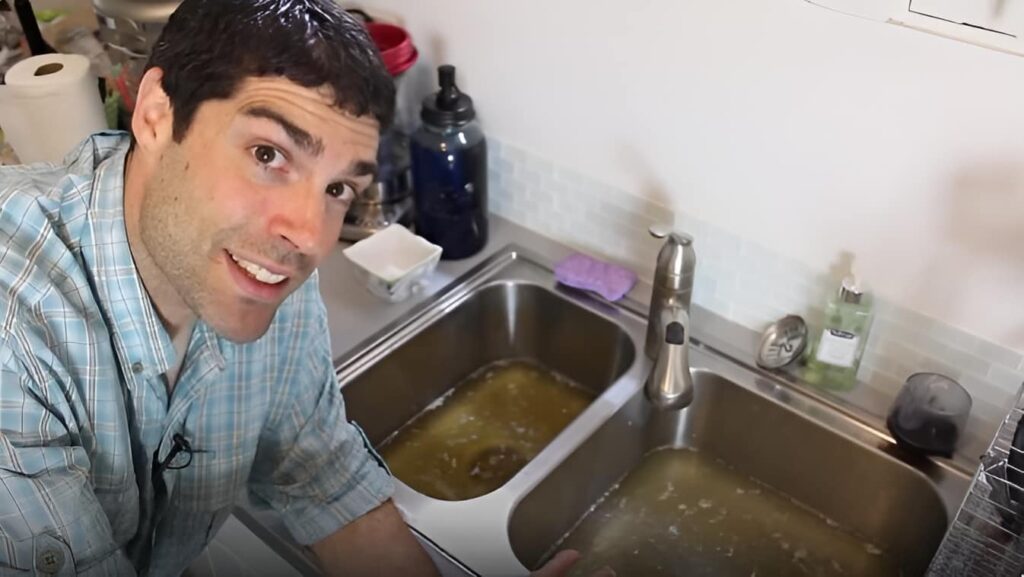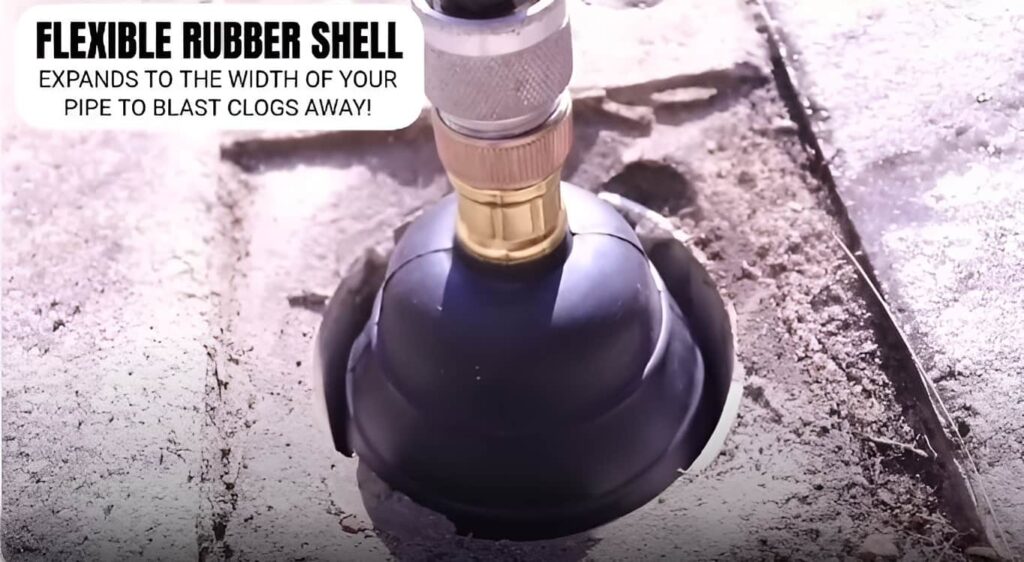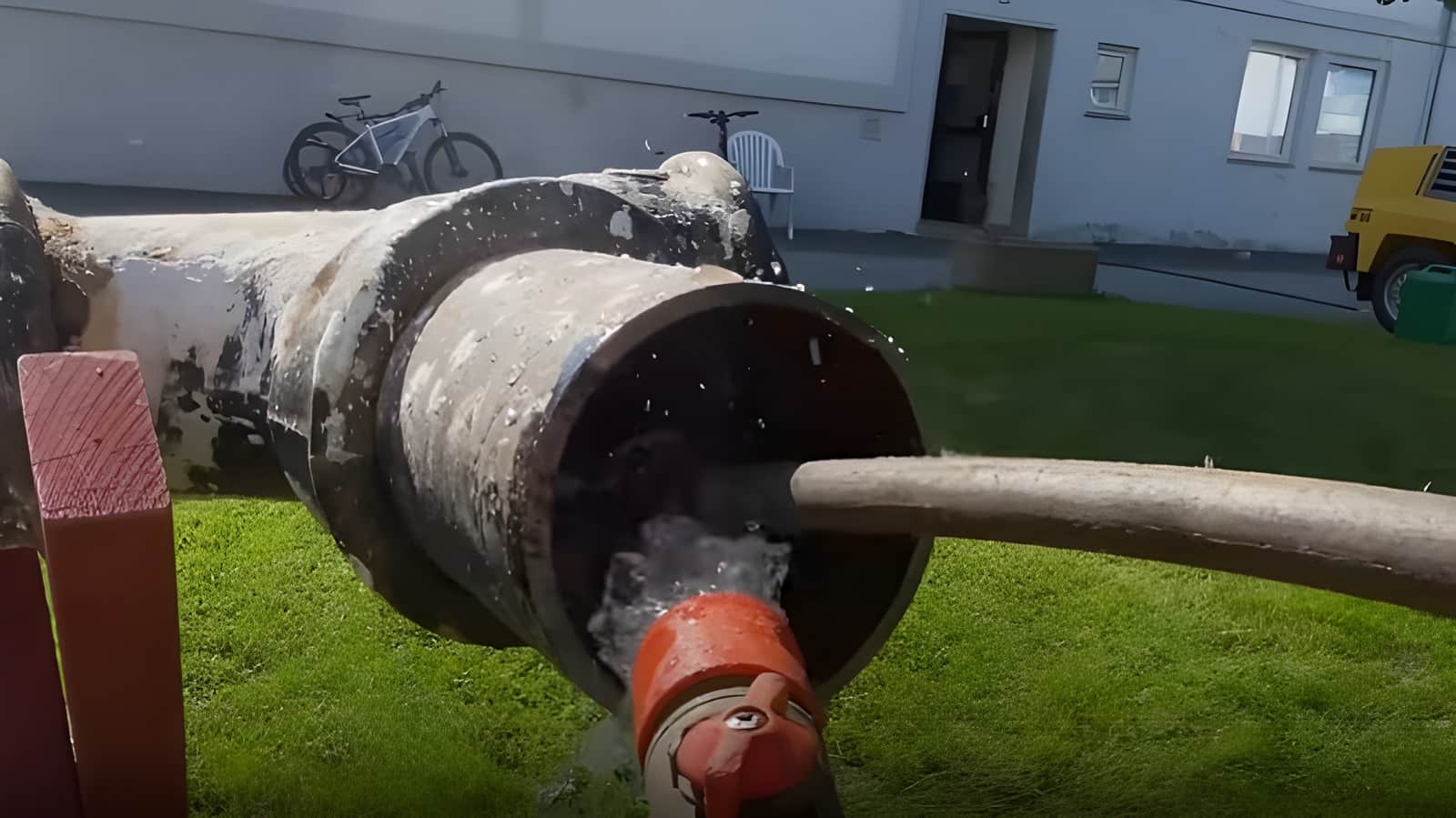A clogged pipe can quickly turn your day into chaos. Water that refuses to drain creates a mess requiring immediate attention. Your house plumbing system links with every drain. A single blocked drain has the potential to disrupt water flow throughout your entire house.
How do I fix a clogged pipe?
When water flow stops through your drain it means a pipe blockage is present. Start by flushing the drain with hot water to clear the clog. Create a natural cleaning solution by combining baking soda and vinegar. For stubborn blockages try using a plunger or drain snake as your solution. Contact a plumber immediately if you experience backed-up drains throughout your house or detect sewage odors from your sewer line.
What Makes Your Pipes Clog Up?
Knowing why drains get clogged helps you fix the problem and stop it from happening again. Most drain blockage comes from buildup in pipes over time.
Common Causes of Pipe Blockage

Kitchen Sink Clogs:
- Grease buildup from cooking
- Coffee grounds stuck in your drain
- Food scraps that get past the disposal
- Soap and dish cleaner residue
Bathroom Sink and Toilet Issues:
- Hair and soap buildup
- Toothpaste and personal care products
- Small items dropped down the drain opening
- Toilet paper and waste in toilet drains
Main Line Problems:
- Tree roots growing into sewer line pipes
- Buildup caused by an accumulation of debris
- Old pipes that have narrowed over time
- Septic system backup
Signs of a Clogged Drain
Watch for these warning signs that show you have a drain clog:
| Warning Sign | What It Means | Action Needed |
|---|---|---|
| Slow drain | Partial blockage forming | Clean drain soon |
| Water backing up | Serious clog developing | Fix the problem now |
| Bad smells | Buildup in pipes or sewer gases | Clean and check vents |
| Gurgling sounds | Air trapped by blockage | Clear drain quickly |
| Multiple drains slow | Main drain or sewer main issue | Time to call a plumber |
DIY Methods to Unclog a Drain
Before you call a plumber, try these simple methods. They work well for many types of clogs and are safe for your plumbing system.
Baking Soda and Vinegar Method
This simple approach can tackle a clogged drain without harsh chemicals:
- Pour one cup of baking soda down the drain
- Add one cup of vinegar and baking soda mixture
- Cover the drain opening with a plug or cloth
- Wait 30 minutes for the reaction to work
- Run hot water down the drain to clear debris
Hot Water Flush
Boiling water can help clear grease and soap buildup:
- Boil a large pot of water
- Pour it slowly down the drain in 2-3 stages
- Let hot water down the drain work between pours
- This method works best on kitchen sink grease clogs
Plunger Method
The right type of plunger can push the clog through your pipes:
For Sinks:
- Use a cup plunger (flat bottom)
- Fill the sink or tub with enough water to cover the plunger
- Plunge up and down firmly 15-20 times
- Check if water flows better
For Toilets:
- Use a toilet plunger (flange type)
- Make sure the plunger seals around the drain
- Push and pull firmly to move the blockage
- Flush to test water flow
When to Use Professional Tools

Some clogs need stronger tools to clear properly. These tools require care but can handle deeper blockages.
Drain Snake (Auger)
A plumbing snake or auger can reach clogs deep in your drain pipe:
- Insert the snake into the drain opening
- Turn the handle as you push it down
- When you feel resistance, you’ve found the clog
- Twist and push to break up the blockage
- Pull out debris stuck on the snake
- Run water to test the drain
Chemical Drain Cleaners
Chemical drain opener products can dissolve some types of clogs:
- Read all safety instructions first
- Use only as directed on the label
- Never mix different drain cleaner types
- Ventilate the area well
- Keep away from children and pets
Warning: Chemical cleaners can damage pipes if used too often. Try simple methods first.
Professional Plumber Solutions
When DIY methods don’t work, call a professional plumber. They have tools and skills to handle tough clogs safely.
Professional Drain Cleaning Methods
High Pressure Water Jetting:
- Uses high pressure water to blast through clogs
- Clears buildup from inside the pipe walls
- Works on main line and sewer line blockages
- More powerful than pressure washer methods
Professional Augers:
- Much longer than home drain snake tools
- Can reach the main drain and sewer main
- Electric models provide more power
- Can cut through tree roots
Camera Inspection:
- Shows exactly where the clog is located
- Identifies pipe damage or tree root problems
- Helps find the best solution
- Prevents guesswork and extra work
Preventing Future Drain Clogs
Keep your drains flowing well with these simple prevention tips:
Kitchen Drain Care
- Never pour grease down any drain
- Use a drain strainer to catch food scraps
- Run hot water after each use
- Clean disposal regularly with ice and salt
Bathroom Drain Maintenance
- Remove hair from drains weekly
- Don’t flush anything but toilet paper
- Use drain covers to catch debris
- Clean P-trap under sinks monthly
Whole House Prevention
- Schedule regular drain cleaning service
- Have your plumbing system inspected yearly
- Replace old pipes before they fail
- Keep tree roots away from sewer lines
When to Call a Professional
Some drain problems need expert help right away:
- Multiple drains clogged at once
- Sewage backup or sewer gases smell
- Water backing up in basement
- Still clogged after trying several methods
- Signs of pipe damage or leaks
A professional plumber can quickly identify whether you have a simple drain clog or a serious sewer line problem. They have the tools to clear even the most stubborn blockage safely.
Cost Comparison for Drain Solutions
| Problem Type | DIY Cost | Professional Cost | Best Choice |
|---|---|---|---|
| Simple sink clog | $5-15 | $100-200 | Try DIY first |
| Deep clog in pipe | $20-50 | $150-300 | Professional recommended |
| Main line blockage | Not DIY safe | $300-800 | Always professional |
| Sewer main issues | Not possible | $500-2000+ | Emergency plumber needed |
Tips for Quick Drain Clearing
Here are some extra tips to help you clear clogs faster:
Before You Start
- Turn off water supply if needed
- Protect surrounding areas with towels
- Gather your tools before starting
- Wear gloves and safety glasses
During the Process
- Work slowly and carefully
- Don’t force tools too hard
- Check progress frequently
- Stop if something seems wrong
After Clearing the Clog
- Run plenty of water to test flow
- Clean up any spills immediately
- Check other drains for problems
- Schedule regular maintenance
Signs You Need Professional Help
Some situations always need a professional plumber:
- Clog comes back quickly after clearing
- Multiple fixtures backing up at once
- Strange sounds from pipes or drains
- Water damage from overflow
- Sewer line or septic system problems
Don’t wait too long to call for help. A small problem can become a big, expensive repair if you ignore it.
Maintaining Your Plumbing System
Good maintenance prevents most drain problems:
Monthly Tasks:
- Check all drains for slow flow
- Clean drain covers and strainers
- Run hot water through all drains
- Check under sinks for leaks
Yearly Tasks:
- Have professional drain cleaning
- Inspect all visible pipes
- Check water pressure throughout house
- Test main water shut-off valve
A clogged drain pipe doesn’t have to ruin your day. Start with simple methods like baking soda and vinegar or hot water flush. If the drain is still clogged, try a plunger or drain snake.
Some clogs need professional help. Don’t risk damaging your plumbing system or water supply by forcing the wrong solution. When you take care of small clogs quickly, they won’t become big, expensive problems later.
Common FAQs:
Q: What causes pipes to get clogged?
A: Drain clogs are most commonly caused by hair, grease, food scraps, soap buildup, and tree roots that invade sewer lines.
Q: Can I use chemical drain cleaners?
A: Chemical drain cleaners are effective yet they pose potential harm to pipes. Use baking soda and vinegar before turning to chemical cleaners for a safer method.
Q: When should I call a professional plumber?
A: Hire a plumber when home methods do not work to clear drains and both multiple drains get blocked or face sewer main backup.
Q: How do I prevent future clogs?
A: To prevent clogs maintain your plumbing by using drain strainers and cleaning the P-trap every month without pouring grease down the drain.
Q: What’s the difference between a toilet and sink plunger?
A: A toilet plunger has a flange for better seal. Sink plungers are flat and work best when you fill the sink with water.
Learn More:
- Understanding plumbing systems and how pipes connect in your home
- Common drain cleaning methods and their effectiveness








1 thought on “How to Fix a Clogged Pipe: Complete Guide to Drain Problems”